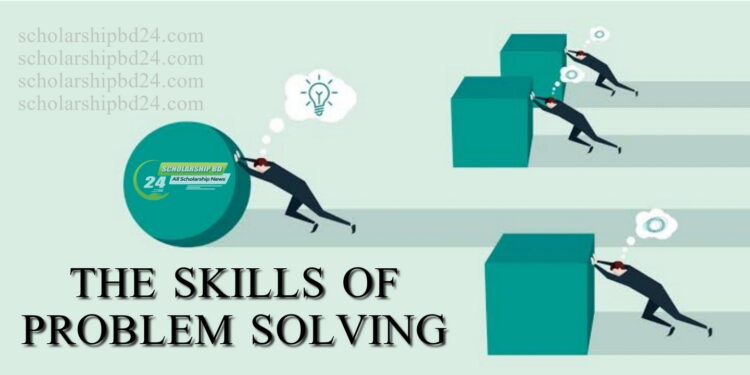THE SKILLS OF PROBLEM SOLVING
Problem solving requires two distinct types of mental skill, analytical and creative. Analytical or logical thinking includes skills such as ordering, comparing, contrasting, evaluating and selecting.
It provides a logical framework for problem solving and helps to select the best alternative from those available by narrowing down the range of possibilities (a convergent process).
Analytical thinking often predominates in solving closed problems, where the many possible causes have to be identified and analysed to find the real cause.
Problems can be classified into one of two categories: the ‘fix-it’ or the ‘do-it’ scenario:
Fix-it – solving an existing problem, (e.g. a current product range is falling short of its sales targets). An immediate short-term solution could be to increase marketing activity, for example.
Do-it – moving you in the right direction for what you want to achieve. This type of problem will require longer term planning in order to achieve its objectives.
Some key problem-solving skills include:
- Analysis
- Research
- Creativity
- Communication
- Dependability
- Decision making
Analysis
The first step to solving any problem is to analyze the situation. Your analytical skills will help you understand problems and effectively develop solutions.
You will also need analytical skills during research to help distinguish between effective and ineffective solutions.
Research
Researching is an essential skill related to problem-solving. As a problem solver, you need to be able to identify the cause of the issue and understand it fully.
You can begin to gather more information about a problem by brainstorming with other team members, consulting more experienced colleagues or acquiring knowledge through online research or courses.
Creative Thinking
Creativity is the act of turning new and imaginative ideas into reality. Creativity is characterised by the ability to perceive the world in new ways, to find hidden patterns, to make connections between seemingly unrelated phenomena, and to generate solutions.
Communication
When identifying possible solutions, you will need to know how to communicate the problem to others. You will also need to know what communication channels are the most appropriate when seeking assistance.
Once you find a solution, communicating it clearly will help reduce any confusion and make implementing a solution easier.
Dependability
Dependability is one of the most important skills for problem-solvers. Solving problems in a timely manner is essential.
Employers highly value individuals they can trust to both identify and then implement solutions as fast and effectively as possible.
Decision-making
Ultimately, you will need to make a decision about how to solve problems that arise. At times (and with industry experience), you may be able to make a decision quickly.
Solid research and analytical skills can help those who have less experience in their field. There may also be times when it is appropriate to take some time to craft a solution or escalate the issue to someone more capable of solving it.
How to improve your problem-solving skills
There are several methods you can use to improve your problem-solving skills. Whether you are searching for a job or currently working, improving your problem-solving skills and associated abilities will help make you a strong candidate and employee.
Acquire more technical knowledge in your field.
Depending on your industry, it may be easier to solve problems if you have strong working technical knowledge. You can gain more technical knowledge through additional coursework, training or practice.
Seek out opportunities to problem solve.
By putting yourself into new situations, you are more likely to be exposed to opportunities to problem solve. You may find there are opportunities to volunteer for new projects in your current role, on another team or outside the workplace for another organization.
Do practice problems
Practice and role-play can be useful tools when learning to develop your problem-solving skills. You can find professional practice books for your industry and problem-solving scenarios online. Practice how you might solve those problems and determine if your potential solutions are viable.
Observe how others problem solve
You may have colleagues who are skilled problem solvers. Observing how those colleagues solve problems can help you improve your own skills. If possible, ask one of your more experienced colleagues if you can observe their techniques. Asking relevant questions can be helpful in applying them in your own career.
To Know More About Scholarship News (Domestic & International) & Admission News, Please Visit Our Website Regularly.
Our Another Web Portal Link EDUGUIDELINE

















